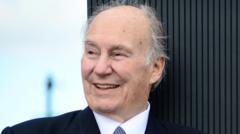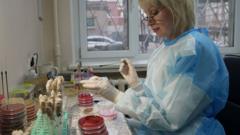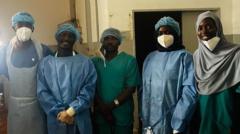In a recent review led by a prominent Canadian neonatologist, an expert panel challenged the evidence used to convict British nurse Lucy Letby, stating that systemic medical failures contributed to fatal outcomes rather than her actions.
Medical Panel Casts Doubt on 'Killer Nurse' Lucy Letby's Conviction

Medical Panel Casts Doubt on 'Killer Nurse' Lucy Letby's Conviction
A group of international neonatal specialists claims to have found no evidence supporting the conviction of Lucy Letby for the murder of seven babies, highlighting systemic issues in medical care.
An international panel composed of 14 neonatal and pediatric experts convened in London on Tuesday, casting serious doubt on the conviction of British nurse Lucy Letby, who was found guilty in 2023 of murdering seven infants in her care. Dr. Shoo Lee, a respected Canadian neonatologist and chair of the panel, reported that their independent review found no medical evidence correlating Letby’s actions with the deaths of the 17 babies at the heart of the trial.
During a press conference, Dr. Lee emphasized that the expert review revealed critical medical errors and systemic issues within the neonatal unit where Letby worked. He stressed that many of the fatalities were a consequence of pre-existing medical conditions and could have been preventable. “We did not identify any murders over the course of our investigation,” he asserted.
The panel's findings are significant, given the high caliber of specialists involved who provided their expertise voluntarily. They meticulously reviewed the available medical records, shedding light on the challenge of interpreting complex cases in a high-pressure medical environment. Moreover, Dr. Lee pointed out specific treatment failures and the management of neonatal conditions that ultimately contributed to the tragic outcomes observed.
This review raises important questions about the broader context of neonatal care and the judicial process concerning health professionals. It also suggests that Letby’s conviction may have been influenced by systemic failings rather than individual malfeasance, adding a new dimension to the ongoing discourse around her case and the implications for medical accountability. The findings advocate for a reconsideration of how medical evidence is assessed in allegations of harm caused by healthcare professionals.




















